- Home
- Kathryn Lasky
Night Witches Page 4
Night Witches Read online
Page 4
“I wasn’t in a war, but I can still see the Night Witches’ strategy. The planes are perfect for this. They can fly slow, slower than the Stukas. It’s the old story.”
“What old story?”
“The tortoise and the hare.”
“No!” Mikhail gasps suddenly. His eyes widen in horror at something outside the trench. We follow his gaze.
High up, caught in the web of the searchlights, a U-2 is burning. It seems as flimsy as a paper kite, or a moth that has flown too close to a flame. It will be ashes in seconds, but I can see parts of the fuselage falling, the wings and the tail drifting slowly to the ground. Could it be Tatyana? Something hardens in me. I want to stop these monsters.
I turn abruptly to Anna. “Comrade Anna, I’ll be more helpful up there than down here. I just know it.”
“You are saying that now, after what you just saw?” Anna asks. I nod. “You’re crazy! A complete lunatic!” But I can see she’s suppressing a smile. A smile, not a smirk like the one Tatyana sometimes gave me. She starts to leave, then turns around, her face suddenly serious. “There is a rumor that the NKVD will allow civilians to cross the river tomorrow. They have a steamship ready.” So Yuri was right. There will be an evacuation. Anna leans forward. “If you are as good a flyer as you say, maybe you can get to an airfield somehow. But get to the jetty early. They are supposed to board at dawn. You have a few hours.” I start to stand up.
“For God’s sake, don’t forget your hat.” Mikhail stands and plops the ushanka on my head. I can only hope I do better than the man who wore it.
The streets near the jetty are packed with crowds. There are thousands of people, and I’m still two blocks from the river. Everyone’s jostling, trying to get as close to the river as possible. There’s a mother with a wailing baby whose mouth is stretched into an enormous black hole emitting screams. I see another child, no more than eight, with a toddler tied to his back. The toddler seems almost as big as the child. A fierce, toothless old lady swings her cane while casting vile curses at everyone in her way.
I bump into something.
“I beg your pardon!” The voice is angry.
“I’m sorry … Martina!” I stare in shock at my mother’s best violin student, standing there clutching her violin case. Her violin case!
“You of all people should understand,” she snaps.
“Understand what?”
“The value of what I am holding in my arms.” Her stupid violin has survived. Yes, it is an expensive one. Not a Stradivarius but a Viktor Marakova, who had been an apprentice to the czar’s violin maker, Nicolaus Ferder Kittel.
“What does that matter now?”
“What does it matter? How can you ask such a question?”
“Your teacher is dead,” I reply. “Maybe you’ll find a new one.”
She scowls. “What are you talking about?”
“My mother, your teacher, is …” But at that moment there is a surge in the crowd and we are all pushed forward. Like an undertow, it threatens to pull me down. My feet leave the ground for several seconds as the mob pushes. But then somehow, miraculously, I make it to the jetty. The gangplank for the steamer has been lowered, and Martina is once again next to me with her stupid violin, which she is now holding above her head. She is snarling at everyone around her. A man shoves me, and I fall to the ground, crying out as boots stomp all over me. Someone has me by the collar and is pulling me. I can only hope they are dragging me toward the steamer.
They are not. I am sitting on the rubble of what had been a broad sidewalk, blood running from my nose. Across the way I see people boarding the steamer. I try to get up and a hand pushes me back down.
“No!” a voice barks. I look up. The dark eyes look down at me grimly.
“Yuri! What are you doing here?” His hand presses hard on my shoulder and I try to fling it off. “I want to go. Let me go.” He slings an arm around my chest and drags me back even farther. “Let me go! What are you doing? I … I … don’t understand …”
“The steamer can’t handle all those people. It will sink or tip over. It’s insane,” he snaps.
I can’t believe that he stopped me. Fury builds inside me as I try to wrench myself free, but then Yuri looks at me with a mixture of tenderness and concern that makes me pause. “Here, let me help you,” he says. “Your face is a bloody mess, and in this weather that blood will freeze.”
He takes a kerchief from his pocket and hands it to me, but keeps his other hand on my shoulder. I just hold the kerchief. He takes it back from me and, holding my chin, begins to dab at my face. I don’t feel pain. I don’t feel blood. I just feel left behind. His hands are gentle, I think, for a sniper. His trigger finger dabs very delicately. “So much blood from such a small nose,” he whispers. “But I think it’s slowing down now.”
I stand up slowly and watch the ferry pull away from the jetty. “What gives you the right to stop me? How can you have the nerve? You’re the one who told me about the evacuation.”
“I know I told you, but I had no idea it would be like this. So many people. I thought there would be more steamers. Bigger ones.”
The boat moves through the water, carrying my hopes along with it. When it reaches the main stream of the river, it slows a bit as it encounters the current, but in a short time it will be on the east side. Although it’s only a few kilometers away from Stalingrad, it might as well be light-years. My only chance is slipping away. My only chance to shatter that windowpane between me and Neverland is gone.
I hear Yuri inhale sharply as a gull-winged Stuka swoops down, the broken cross clearly visible on its tail. A fireball explodes in the air as the steamer bursts into flame. Ablaze, it lists to one side and then begins to sink. An eerie hush settles on the throngs of people still on the jetty. People who’d despaired at being left behind are now transfixed by the scene of certain death occurring before their eyes.
Trembling uncontrollably, I sink to my knees. That could have been me, I think, and then, That is Martina! Martina and her violin. That is the mother with her baby. That is the schoolboy with the toddler. That is the cursing old lady waving her cane.
When I turn to look for Yuri, he is gone. Gone to kill with his gentle sniper fingers that wiped the blood from my face. I look up at the sky. It is daylight. The witches sleep, and I am no closer to their airfields than I was before.
I turn and begin to thread my way back to Trench 301.
The weeks that follow are formless except for the fact that the weather is growing colder. Getting out of the city is impossible now. More German troops pour in. We blow them up, destroy their tanks, but they seem to multiply. I think of my biology class’s regeneration experiments with the flatworms. We would cut them up and then they would regenerate the lost part—the head, the tail, sometimes within a day. We’ve got Nazi flatworms here.
Sometimes the sky is black with Stukas. The noose is tightening around my city. We crouch in our trench but the bombardment is endless. It seems like just a matter of time before an explosion finally rips us from the trench.
I think about Yuri. His fingers touching my face. His intense eyes peering through the crosshairs of his rifle. I try to banish him from my thoughts, reminding myself that he’s a sniper. Snipers don’t flirt.
Martina’s face slides into my mind. The sneer curling across her face as she clutched her violin. I do not exactly grieve for her, but I have thought a lot about her, more specifically about her violin. Did it somehow survive, like the calendar hanging on the wall of our apartment? Is it floating down the river toward the Caspian Sea? It’s growing colder, and the river might soon be locked in thick ice.
Could the ice be my blessing in some way? Could I walk across to the east side of the river and make it to the airbase at Akhtuba?
Two nurses from the civilian militia arrive to deliver some winter clothing, most of it taken off dead soldiers. They hand me bloodstained fur trousers, which I put on quickly, grateful for the warmth. Th
e knee is shot out of one leg, and I assume that the soldier died during an attempted amputation. What does one call these clothes—hand-me-downs? Not exactly, I think. It’s hardly as if they outgrew them.
We barely sleep except in small snatches when we are not operating the guns. I have not had a bath since before Mama died. Where would one bathe in a trench? Tatyana and I used to argue over who got the first bath when there was plenty of hot water. Now there is no water. We used to play games while we hung the laundry. Now there is no laundry and no make-believe.
Tatyana was always the boss in make-believe. We constantly fought for the role of Glinda the Good Witch.
“You can be a Munchkin,” Tatyana would say. “They’re so cute.”
“No, they aren’t. They’re weird.”
“Well, then, you can be the Wicked Witch of the East,” Tatyana would reply calmly.
“And get squashed by Dorothy’s house? Oh yeah. That’s great, Tatyana.”
Now Tatyana is a witch and I’m crammed in this trench and might as well be a Munchkin. And it’s not make-believe and it’s not Oz. It’s Stalingrad and it’s war.
Our lives revolve around these guns, around killing. I start to look forward to the visitors, who are a welcome distraction. One of my favorites is a Kazan Tatar, a cook from a Red Army antitank detachment. We call him Gunga Din because, like the legendary character in the Rudyard Kipling poem, he comes bearing water in the large Red Army thermoses. He also brings tea and soups, and crawls with these containers strapped to his back up to the front lines.
Yelena we call “the butcher.” She is a mortar operator down the trench line from us, but when she is not manning the mortar, she creeps out with her knives and cuts meat off the dead horses.
I can’t resist asking each visitor about the state of the river. How solid has the ice become? Yelena looks at me, her eyes full of warning. “Solid enough for a rocket launcher from the east bank to fall short and crack the river, taking five good citizens of Stalingrad walking across to the bottom of the river. So don’t even think of it.”
One day we hear that the central rail station has been taken by the Germans and the next day that Chuikov and the Red Army have taken it back. But the tide is beginning to turn ever so slightly. Soon, the word kessel is on everyone’s lips—kessel or cauldron, like a witch’s cauldron. The plan for Operation Uranus is to send our troops to surround the German Sixth Army, in a formation that mimics a cauldron. And then that cauldron is going to be turned upside down right on top of the Germans.
But the Germans are still obsessed with capturing Stalingrad. There’s a rumor that the führer ordered that Stalingrad be captured by October 15. Yet October 15 comes and goes. By this time, I have learned not only the mysteries of the 37-millimeter antiaircraft gun, but I have become an efficient loader for the DP-28 machine gun. It’s relatively light: eight kilos, or about twenty violins. Violins weigh about 400 grams. So I am now playing a DP-28 machine gun. A staccato nocturne.
My last conversation with Mama streams through my head. Your father said you were a natural.
Better flyer than violinist.
You had an ear; you just didn’t practice. You had as much potential as any one of my students.
Look at me play now, Mama, I think as I finish loading the pan. Gregory is the operator of this gun. A tall, gangly lad of thirteen. He is very proficient. I have completed the loading but he is not firing.
“Something wrong, Gregory?” I shout as the din of gunfire reaches a deafening level. I look up and a fountain of blood pours down on me. Gregory begins to fall, his frozen eyes wide in disbelief. There is a hole in his forehead—a sniper bullet? The ground begins to rumble as a panzer rolls toward us, meters away. The machine gun is mounted on a tripod. I jump up and press my eye to the scope. I see the sniper. There is no pistol grip, just a trigger ring that I clutch, then pull. “Gregory,” someone yells. “Get on the 37.”
Where’s Mikhail? Why isn’t Mikhail on 37, our name for the antiaircraft gun? But there is no time to think. I run down the trench to Mikhail’s station. He’s been shot too. My little commander is bleeding. Bleeding but furious. “You have to do it, Valya. I can’t.” To my horror, I see he has a wrist that ends in a bloody mass—no hand.
“Do it, Valya. It’s got a fresh belt in it. Do it!”
And so I do it. Once again I press my eye to the scope. The panzer is advancing. This will be the end of all of us. I turn the wheel. I get the panzer directly in the crosshairs and press the pedal. An enormous explosion rocks the trench, and I feel the rumble in my bones.
“You got it!” Mikhail cries, jubilation in his voice. I tear off my ushanka and wrap it around his bleeding stump.
“Mikhail,” I whisper. “You can’t die. You can’t.” Such a small boy and so much blood.
Anna rushes over to us. “What’s going on? I saw Mikhail blow up one of the new super panzers just now.” But stares at us, confused, unable to comprehend the scene before her.
“Valya blew it up. Not me.”
“Valya?” she repeats numbly.
“Anna, we have to get him help. Is there a medic somewhere down the trench line?”
“I think so.” Her eyes are glazed. She seems rooted to the ground.
“Go!” I scream.
The ushanka is now thoroughly soaked in blood. Mikhail is trying to talk, but his words are faint and slurred.
“Mikhail, don’t talk. You need your energy. Please, hold on until the medic comes.”
He has a faint smile on his face. He looks so young. Not the little old man anymore. “I want to tell you one thing.”
I sigh and shake my head. What could he want to tell me that’s so important? “What is that?” I say softly.
“I won’t be able to play the piano anymore … You know I was fit for more than just firing the 37. I was accepted by the Gnessin Institute to study … to study with Evgenia Fabianovna herself … I don’t want to brag, but they said I was a prodigy.”
I bend over close to his face and whisper into his ear. “You can brag all you want … you are a prodigy … Evgenia Fabianovna herself? That’s amazing.”
He nods slightly. “For my audition, I played a Chopin nocturne …” His breathing grows rough. “But, Valya, what’s life without music?” He closes his eyes. He is gone.
The weather gets colder. The bitter weather will be as effective as our machine guns and rocket launchers against the Germans. The little Austrian corporal knows nothing about Russian winters. Last winter the Nazis suffered, and this year it will be worse for them. They don’t know how to dress, and even if they did, their supplies are not coming through. The Night Witches bombed one depot full of boots and heavy clothing. The temperature drops to negative thirty degrees and the river freezes solid. My dream of crossing becomes more vivid. The airbase looms as sparkling as the Emerald City of Oz, and the frozen river is my yellow brick road.
The Germans increase their attacks, and so do the Night Witches. I look out into the frosted blackness and see the familiar formations. The trios of little planes swoop through the night to destroy the ammo dumps, supply depots, and temporary airfields that ring the city to the west.
“No Christmas for the witches. They are still riding their brooms,” Yelena the butcher says as she arrives on Christmas Eve with hunks of bloody horsemeat strapped to her back. Anna gives her a sharp look. I know she is trying to protect me. But how can I not think about my sister on Christmas Eve?
Yelena hands me a piece of horsemeat that she roasted on the camp stove. Anna announces that because it is Christmas we all will receive an extra ration of vodka.
The evening continues quietly until Gunga Din shows up with a pot of steaming soup and a wireless radio.
“You won’t believe what I heard,” he says breathlessly.
“What?” Anna asks.
“There’s a German bunker not far from here, so we can pick up their radio broadcast from a Berlin station. I know enough German to un
derstand. The announcer just said, ‘Reporting from Stalingrad.’”
“What?” I say, and look at Anna. “There’s a German newsman actually broadcasting from Stalingrad?”
“Yes, listen.” He starts fiddling with the nobs and a hush falls over the trench. We all look at one another with confusion as voices begin to swell, laced with the static of the radio broadcast. It is a choir singing “Silent Night,” or the German version, “Stille Nacht, Heilige Nacht.”
“According to the reporter, the German army is singing this in the middle of Stalingrad. But they’re lying! It’s a complete deception.” Gunga Din crosses his arms and glares at the radio.
“That sounds like Goebbels’s work,” Anna says. “Goebbels, master of propaganda.”
I slide the pistol from the holster I have just put on the floor. Turning it with the muzzle pointed down, I speak into the grip as if it were a microphone. “The radio newsman and the choir are not in Stalingrad singing ‘Silent Night.’ We are! Russians citizens of Stalingrad. And we are not singing ‘Silent Night.’ We just blew up two panzers in the last hour. Not one step back!”
My comrades cheer. “Go on, Valya. Tell ’em,” Anna yells.
“That voice is my commanding officer, Anna Fyodorov, and she will now sing a favorite Russian Christmas song. ‘The Forest Raised a Christmas Tree.’”
In deep dark woods was born and raised
A little Christmas tree.
In winter cold and summer heat
She stood all straight and green.
By the second verse we have all joined in.
The snowstorm sang her lullabies:
“Sleep, prettiest of trees.”
The forest would blanket her with snow,
“Stay warm and don’t you freeze!”
We all feel better as we conclude the song.
A few minutes later we hear footsteps approaching the lounge. Rudolf, a thin boy who is a fantastic submachine gunner, enters. His face is ashen. Behind him in the immediately recognizable flat blue hat with the gold braid and a star is Comrade Commissar Sergei Malinkov of the Tenth Rifle Division. Malinkov is the second-highest-ranking NKVD officer in Stalingrad. He carries a bundle in his arms, which he drops on the ground with a thud. We gasp. It is the body of a child. A boy, perhaps eight or nine years old. There is a neat black hole in his temple. It could almost have been painted on.

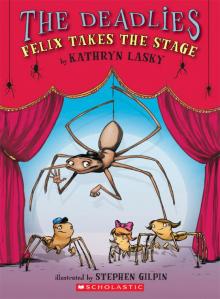 Felix Takes the Stage
Felix Takes the Stage Lucy
Lucy Lone Wolf
Lone Wolf Broken Song
Broken Song The Shattering
The Shattering The Crossing
The Crossing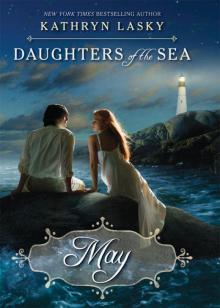 May
May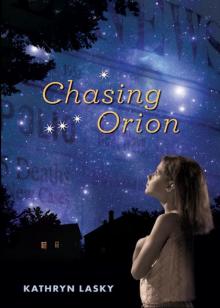 Chasing Orion
Chasing Orion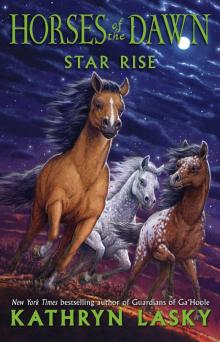 Star Rise
Star Rise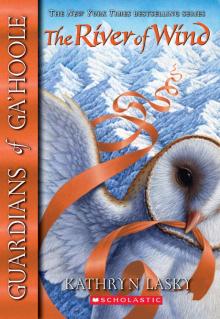 The River of Wind
The River of Wind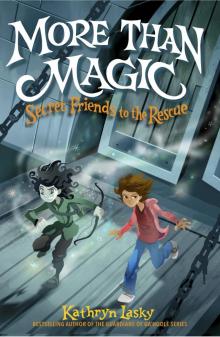 More Than Magic
More Than Magic Born to Rule
Born to Rule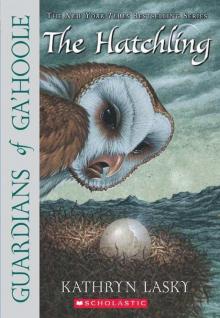 The Hatchling
The Hatchling The Rescue
The Rescue Marie Antoinette: Princess of Versailles, Austria - France, 1769
Marie Antoinette: Princess of Versailles, Austria - France, 1769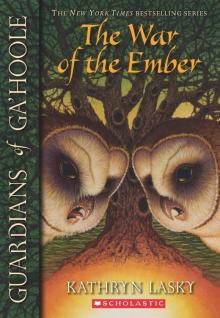 The War of the Ember
The War of the Ember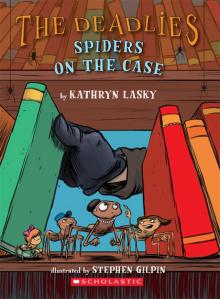 Spiders on the Case
Spiders on the Case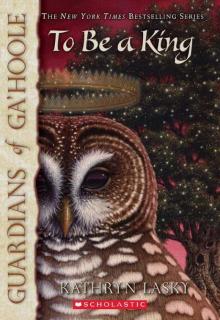 To Be a King
To Be a King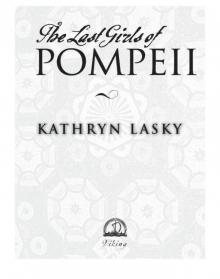 The Last Girls of Pompeii
The Last Girls of Pompeii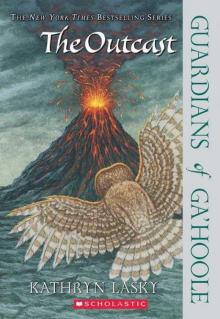 The Outcast
The Outcast Exile
Exile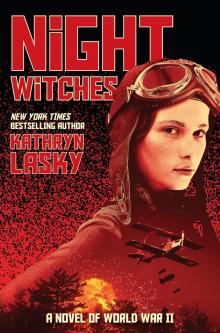 Night Witches
Night Witches Spirit Wolf
Spirit Wolf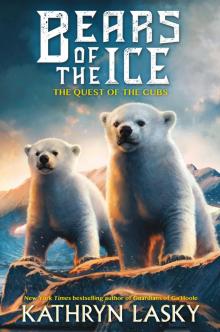 The Quest of the Cubs
The Quest of the Cubs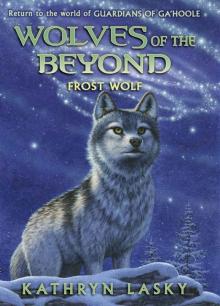 Frost Wolf
Frost Wolf The Keepers of the Keys
The Keepers of the Keys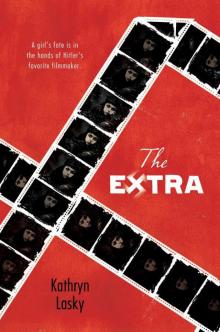 The Extra
The Extra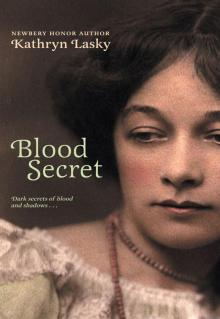 Blood Secret
Blood Secret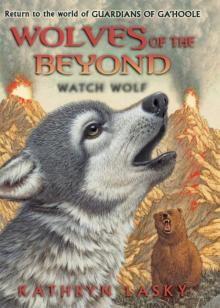 Watch Wolf
Watch Wolf Blazing West, the Journal of Augustus Pelletier, the Lewis and Clark Expedition
Blazing West, the Journal of Augustus Pelletier, the Lewis and Clark Expedition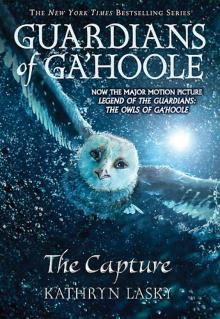 The Capture
The Capture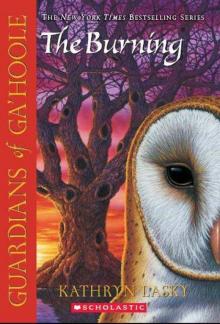 The Burning
The Burning The Journey
The Journey Unicorns? Get Real!
Unicorns? Get Real! The Escape
The Escape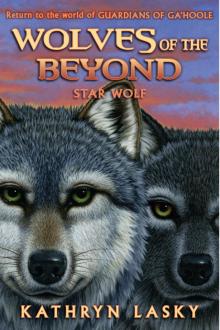 Star Wolf
Star Wolf Ashes
Ashes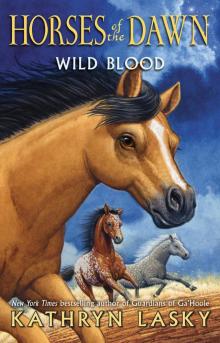 Wild Blood
Wild Blood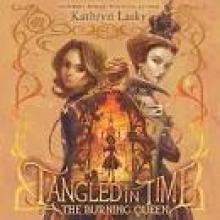 Tangled in Time 2
Tangled in Time 2 The Siege
The Siege Hannah
Hannah Elizabeth
Elizabeth A Journey to the New World
A Journey to the New World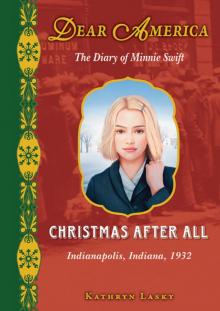 Christmas After All
Christmas After All Mary Queen of Scots
Mary Queen of Scots